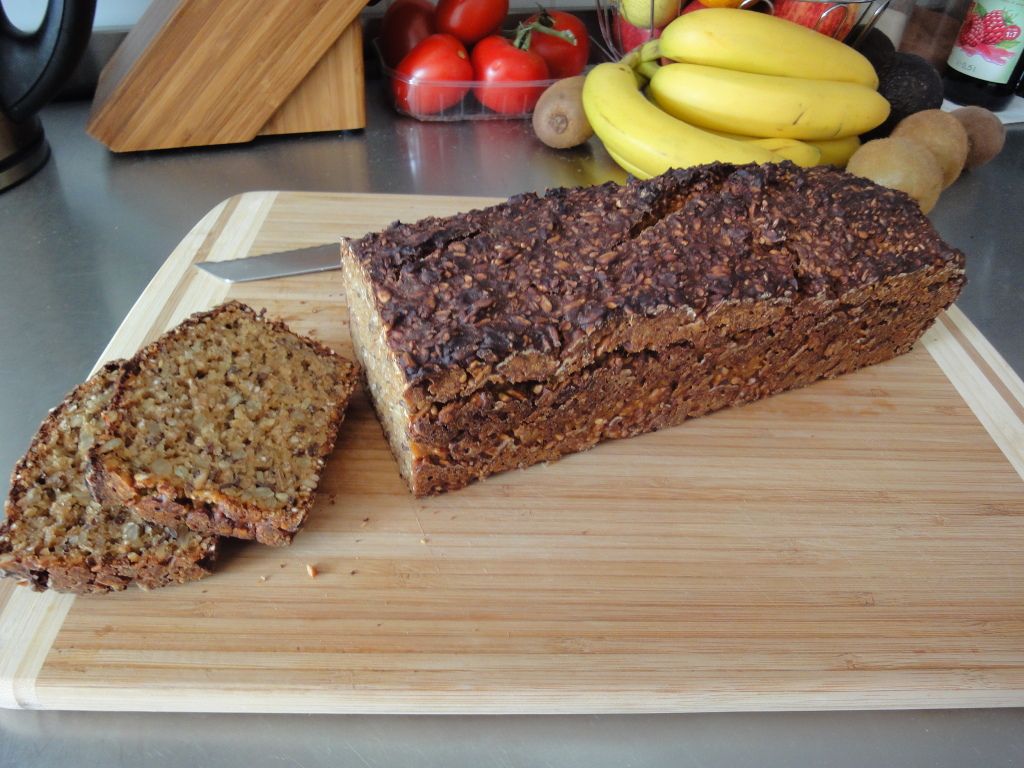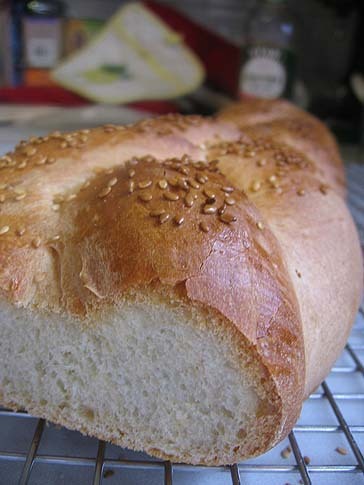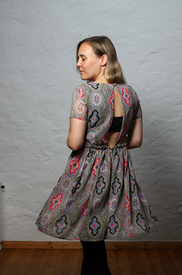Bread is not bad
Replies
-
am i the only person who has no idea what marmite is?The only bad thing I find about white bread is that it tastes so good... I HAVE to stay away from it. Ive been known to demolish a whole loaf of white bread with a pot of marmite.
it's the best spread in the world apart from chocolate spread.0 -

Yummy!
i want! what it is made of? did you make it?0 -
What is wrong with white bread - not sure if that has been answered successfully yet!
Gluten sensitivity perhaps ? http://www.drbriffa.com/2012/09/21/bread-the-staff-of-life-or-the-stuff-of-nightmares/0 -
What is wrong with white bread - not sure if that has been answered successfully yet!
Gluten sensitivity perhaps ? http://www.drbriffa.com/2012/09/21/bread-the-staff-of-life-or-the-stuff-of-nightmares/
Sorry, I should have caveated, assuming no gluten sensitivity, which would be a problem with wheat bread and not just white.0 -
I'm still laughing over "Bread is not bad, unless it's white" from OP.0
-

Yummy!
i want! what it is made of? did you make it?
I would love to know the recipe too! That stuff looks delicious!0 -

Yummy!
i want! what it is made of? did you make it?
I would love to know the recipe too! That stuff looks delicious!
Food porn.
 0
0 -

Yummy!
i want! what it is made of? did you make it?
I would love to know the recipe too! That stuff looks delicious!
Food porn.

Enjoy.... I'm just not into that.
I like my bread soft and moist (like for PBJ)... unless I'm putting meat on it, then it's Italian with sesame seeds.... all the way.

..........
I should make some and add some heap hearts too!0 -

Yummy!
i want! what it is made of? did you make it?
I would love to know the recipe too! That stuff looks delicious!
Food porn.

Enjoy.... I'm just not into that.
I like my bread soft and moist (like for PBJ)... unless I'm putting meat on it, then it's Italian with sesame seeds.... all the way.

..........
I should make some and add some heap hearts too!
I'm an equal opportunity bread eater. Except for white bread, and that's because it tastes awful to me.0 -

Yummy!
i want! what it is made of? did you make it?
Yes I did. It's a realy easy buttermilk bread. Here is the recipe, if you wanna try it:
0.5 Liter buttermilk
1 tsp Salz
50 gr beet syrup
1 pack dry yeast (7 gr)
250 gr spelt flour
125 gr rye whole wheat
125 gr spelt whole wheat
50 gr linseed
50 gr sesame
75 gr sunflower seeds
1. Warm buttermilk, salt and syrup untill it's lukewarm. Stir the yeast with whole milk mixture.
2. Mix flour, whole wheat, linseed, sesame and sunflower seeds. Put it together with the milk-yeast mix and knead thoroughly. Is best done with your hands. Preheat oven to 175 degrees. Grease a loaf pan and dust with flour.
3. Pour batter. Bake for about 1.5 to 2 hours. Let it cool down in the loaf pan, then carefully remove.
4. Good apetit!0 -

Yummy!
i want! what it is made of? did you make it?
I would love to know the recipe too! That stuff looks delicious!
I posted the recipe above - hope you like it. Best.0 -
Just curious what do you eat to get whole grains in?
Why are whole grains a requirement for a healthy diet?
Nutrient-dense? ... Nope, strike one.
Tasty? ... Not for me, strike two.
Filling? ... Not for me, strike three.
Bread is just a convenient cultural thing, a largely nutritionally superfluous vehicle for whatever is on/in it.
Making your own is great by the way, at least you know what is in it.
I'll pass though.0 -
Sorry, I should have caveated, assuming no gluten sensitivity, which would be a problem with wheat bread and not just white.
There are many people out there that react badly to gluten where the standard 'Gluten Sensitivity' test will return negative.
Check out the stories of people who have quit the grains completely, it's an eye-opener. They ain't all lying. 0
0 -
Gluten sensitivity perhaps ? http://www.drbriffa.com/2012/09/21/bread-the-staff-of-life-or-the-stuff-of-nightmares/
John Briffa is a Withnail And I fan (I've been chatting to him over email today in fact), therefore everything he says carries considerable weight for me.
Back to your lovely bread then people, ignore the scare-mongers ...0 -
Just the same things as with brown bread.What is wrong with white bread - not sure if that has been answered successfully yet!0 -
I love bread! I buy mine from the local market twice a week. It's wholegrain, and one slice fills you up but............. I have the same trouble with bread as I do with chocolate. If I have one slice.............................................. nom, nom, nom......0
-
Would you mind elaborating a little more? I am having some serious digestive problems and so far have it tracked to wheat and dairy. I rarely eat potatoes b/c I am allergic to them in their raw state (Think hives and rash just from peeling them) and therefore don't feel I should eat them either. I don't feel well after eating rice quite often either. Was this something that you discovered via trial and error or with help from an allergist, nutritionist, or other healthcare professional? I've been through a whole battery of tests with no answers and getting sooo frustrated!For a normal person with a perfectly normal digestive track, bread and other carbs are fine.
For someone with digestive disorders, like myself, bread and other carbs such as potatoes, rice, rye, etc... can cause problems.
But yes, to each his/her own.
It sounds like you have an immune disorder of some sort. Have you gone to a gastroenterologist? Have you had a colonoscopy/biopsy? I was diagnosed with crohn's disease at a young age and have gone through phases of "my body can eat this" and "my body cannot eat this". Everything became a gamble and still is...
Among the Crohn's and Colitis community, a lot of people try to stick to the Specific Carbohydrate Diet (http://www.breakingtheviciouscycle.info/) . It ties closely to a paleo/primal diet but revolves around the notion that certain foods trigger TNF factors inside the digestive track. Look into it, give it a shot for 30 days... see if that helps. If you smoke, quit. If you drink, cut back.
Good luck to you! I hope you figure it out!
Thank you for the info!! Haven't been to the GI yet, its scheduled. I already eat pretty close to Paleo/Primal b/c that seems to be the only thing I can tolerate. I have never smoked and rarely drink. (Only 2-3x a year, and NEVER drunk...just a drink) I will take a peek at the link you shared and see if that's something I should try.0 -
What is the pumperknickel? b/c she got me too. That B!TCHlied to me when she said he was good for me, the next thign i know I come home to an empty house, my Credit Cards maxed out and all the copper pipes torn out of the wall... that b!tch!!!!!Bread IS bad. It gave my bank account number to a "Nigerian prince". He wasn't a Nigerian prince at all!
pumpernickel” actually comes from the German words “poomper” and “nickel”, which loosely translates to fart goblin
Pumpernickel is a cruel mistress! Glad I never got mixed up with her.0 -
This thread is a really good example of how health is personal in most ways. Eat what you know is good for you personally in the ways that are best for you personally.0
-
This thread is a really good example of how health is personal in most ways. Eat what you know is good for you personally in the ways that are best for you personally.
This. For me, I like bread, I don't have a problem with it, but where possible, I eliminate most grains in favor of vegetables that offer similar nutrients. This is especially true for me when it comes to pasta. Give me zucchini/carrot strips in place of noodles any day. I can't think of anything I can get from grains that I can't get from other sources.
I have a slice of bread a few times a week. It almost induces a high... and that seems weird to me. Lol.0 -
I refuse to give up any of my grains. I go for healthier options, it has its benefits.0
-
..but alcohol is bad. no nutritional benefit
You are right about that. But sometimes a glas of good wine for pleasure is ok for me. Even because I'm from a wine area and my famliy makes our own wine. ;-)
Wine has healthy antioxidants.0 -
What is wrong with white bread - not sure if that has been answered successfully yet!
This is why whole grain bread is generally considered heatlhier than white.The invention of industrialized roller mills in the late 19th century changed what we got from grains. Milling strips away the bran and germ, making the grain easier to chew, easier to digest, and easier to keep without refrigeration (the healthy oils in the germ can turn rancid, giving the grain an off taste). Processing also pulverizes the endosperm, turning it from a small, solid nugget into millions of minuscule particles.
Refining wheat creates fluffy flour that makes light, airy breads and pastries. But there’s a nutritional price to be paid for refined grains. The process strips away more than half of wheat’s B vitamins, 90 percent of the vitamin E, and virtually all of the fiber. It also makes the starch easily accessible to the body’s starch-digesting enzymes.
A growing body of research shows that returning to whole grains and other less-processed sources of carbohydrates and cutting back on refined grains improves health in myriad ways.
Source, or for more information: http://www.hsph.harvard.edu/nutritionsource/health-gains-from-whole-grains/0 -
I personally LOVE bread! I
 carbs in general.
carbs in general.
I make my own breads. So i KNOW what's in them.
I use organic non-gmo flours:
❤ white flour (as my main staple flour)
❤ homemade oat flour (for pancakes)
I honestly LOATHE anything whole wheat.0 -
Bread IS bad. It gave my bank account number to a "Nigerian prince". He wasn't a Nigerian prince at all!
You went about that all wrong. I gave my bank number to a Nigerian prince and now I'm a millionaire. I'm guessing that my prince was a whole grain kind of prince. But not one containing gluten, obviously.0 -
Mature cheddar melted on white toast will be my 'breakfast' tomorrow (eaten at lunchtime, 'cos that's when I have my breakfast).0
-
It has little nutritional benefit because it has been bleached and then " enriched" when they add some of the good things back to it. It is easily converted to sugar and if you,re Insulin resistant,diabetic gluten intolerant , among other things it can cause issues.0
-
Bread IS bad. It gave my bank account number to a "Nigerian prince". He wasn't a Nigerian prince at all!
Say what? Just asking.....0 -
It has little nutritional benefit because it has been bleached and then " enriched" when they add some of the good things back to it. It is easily converted to sugar and if you,re Insulin resistant,diabetic gluten intolerant , among other things it can cause issues.
Yup. That's why I'm adding cheese. It will enrich the bread nicely and then the fat in it will lower the overall glycaemic index of the meal.
Cheese is medicine.0 -
Of course bread isn't bad!! :laugh: :laugh: :laugh: :laugh: ....
Except for me. and my mom. and my husband. and my dad. and my MIL. and my son. :blushing:
Gee, I guess it is bad.:huh:
To each his own. :smokin:0
This discussion has been closed.
Categories
- All Categories
- 1.4M Health, Wellness and Goals
- 398.1K Introduce Yourself
- 44.7K Getting Started
- 261K Health and Weight Loss
- 176.4K Food and Nutrition
- 47.7K Recipes
- 233K Fitness and Exercise
- 462 Sleep, Mindfulness and Overall Wellness
- 6.5K Goal: Maintaining Weight
- 8.7K Goal: Gaining Weight and Body Building
- 153.5K Motivation and Support
- 8.4K Challenges
- 1.4K Debate Club
- 96.5K Chit-Chat
- 2.6K Fun and Games
- 4.8K MyFitnessPal Information
- 12 News and Announcements
- 21 MyFitnessPal Academy
- 1.5K Feature Suggestions and Ideas
- 3.2K MyFitnessPal Tech Support Questions

















